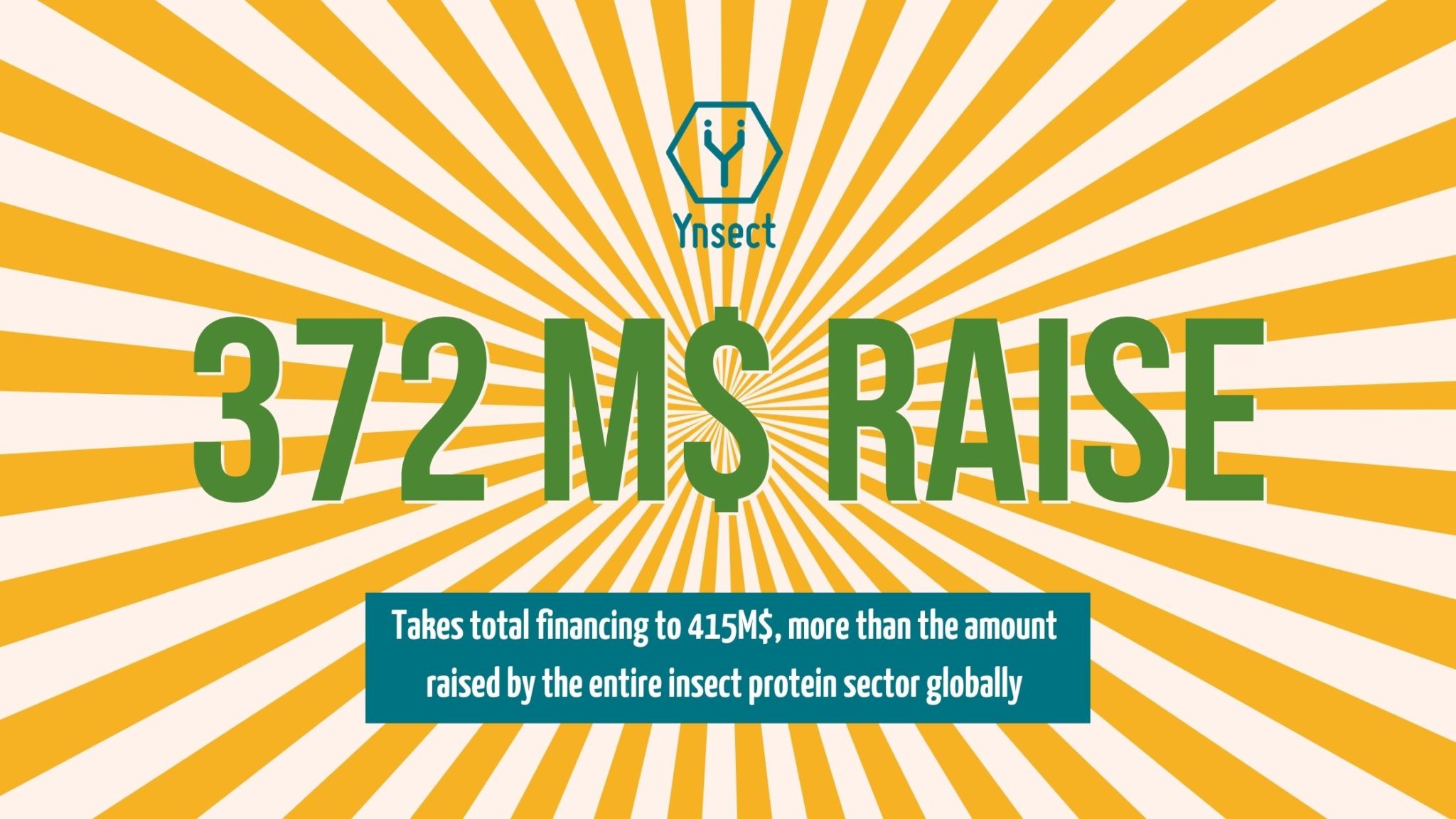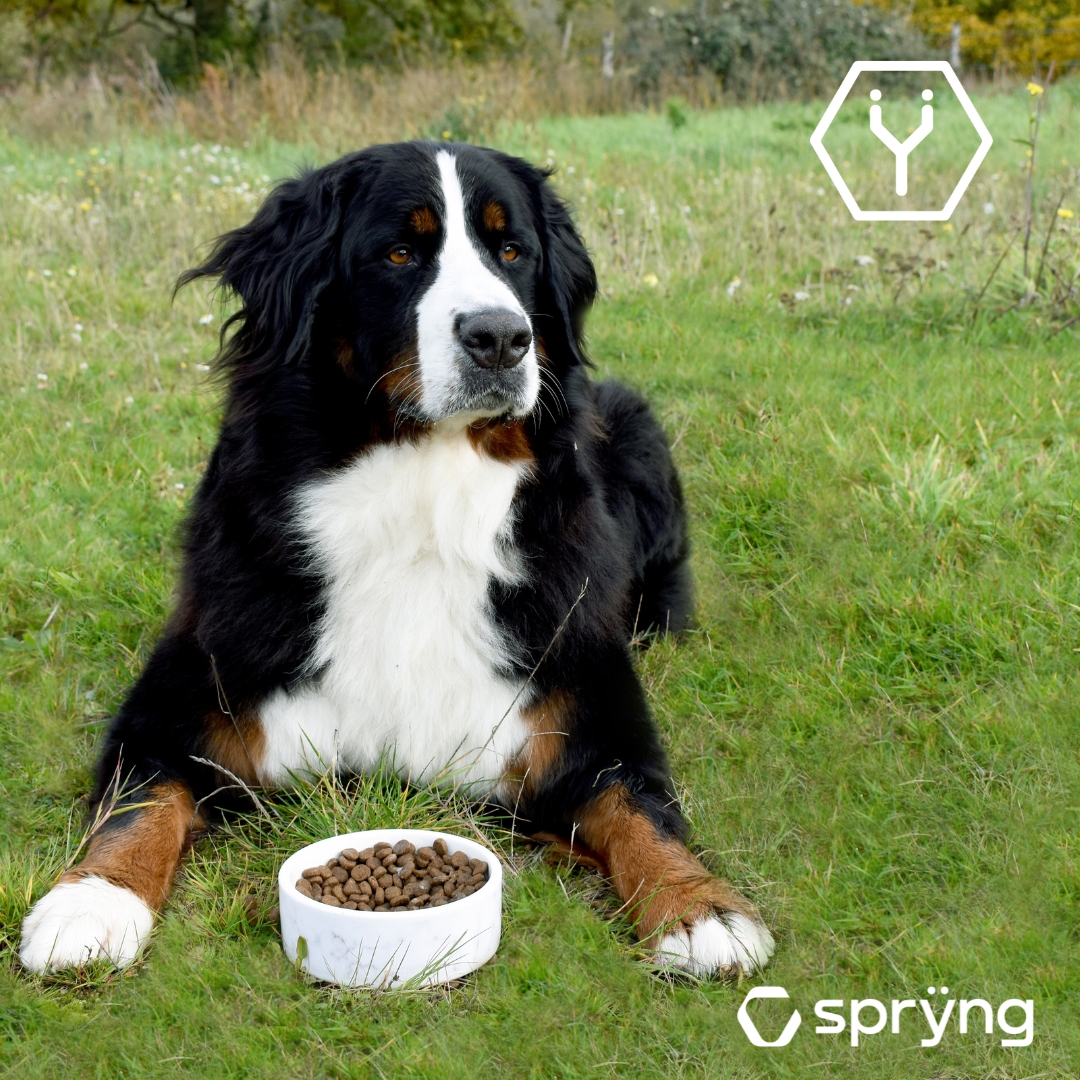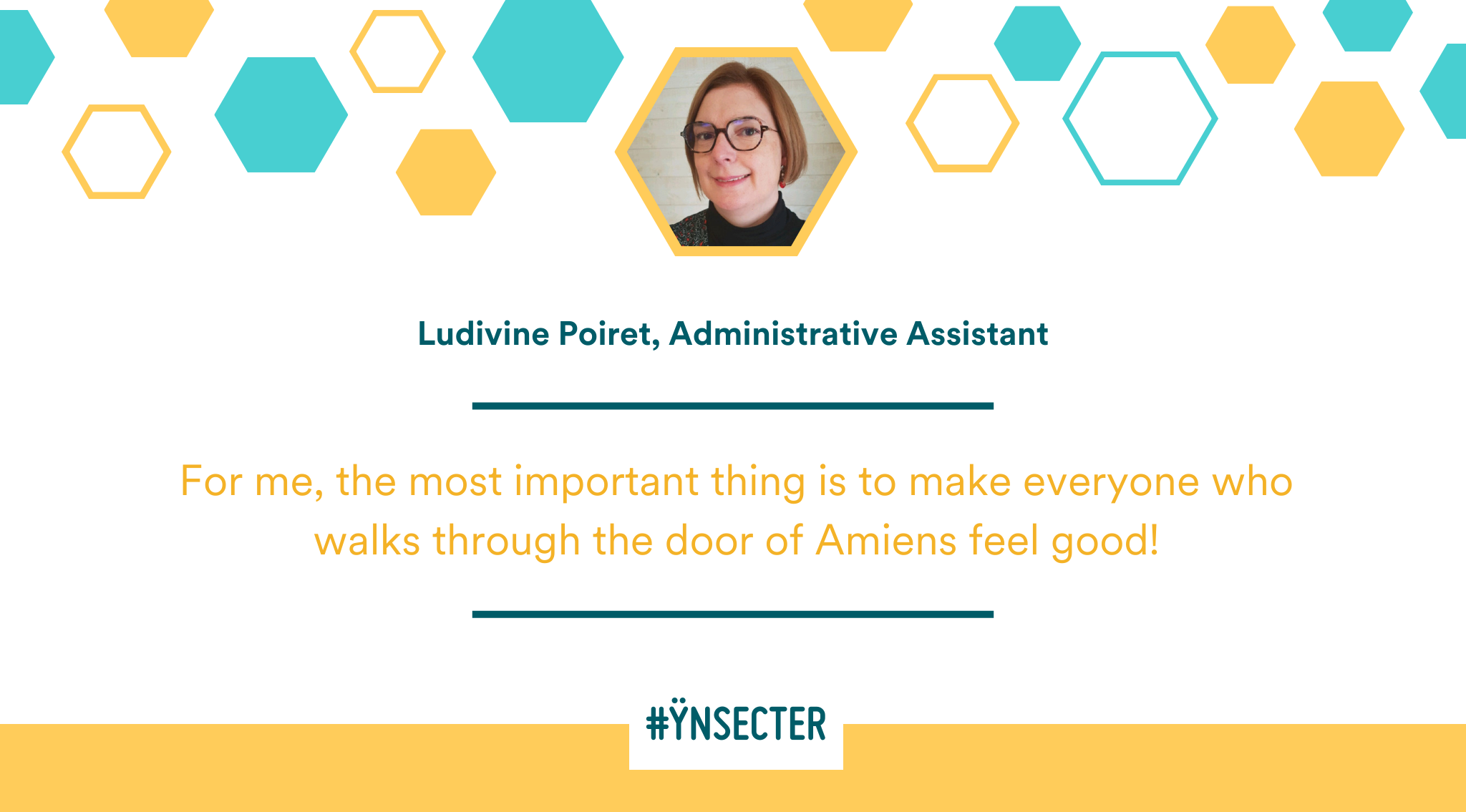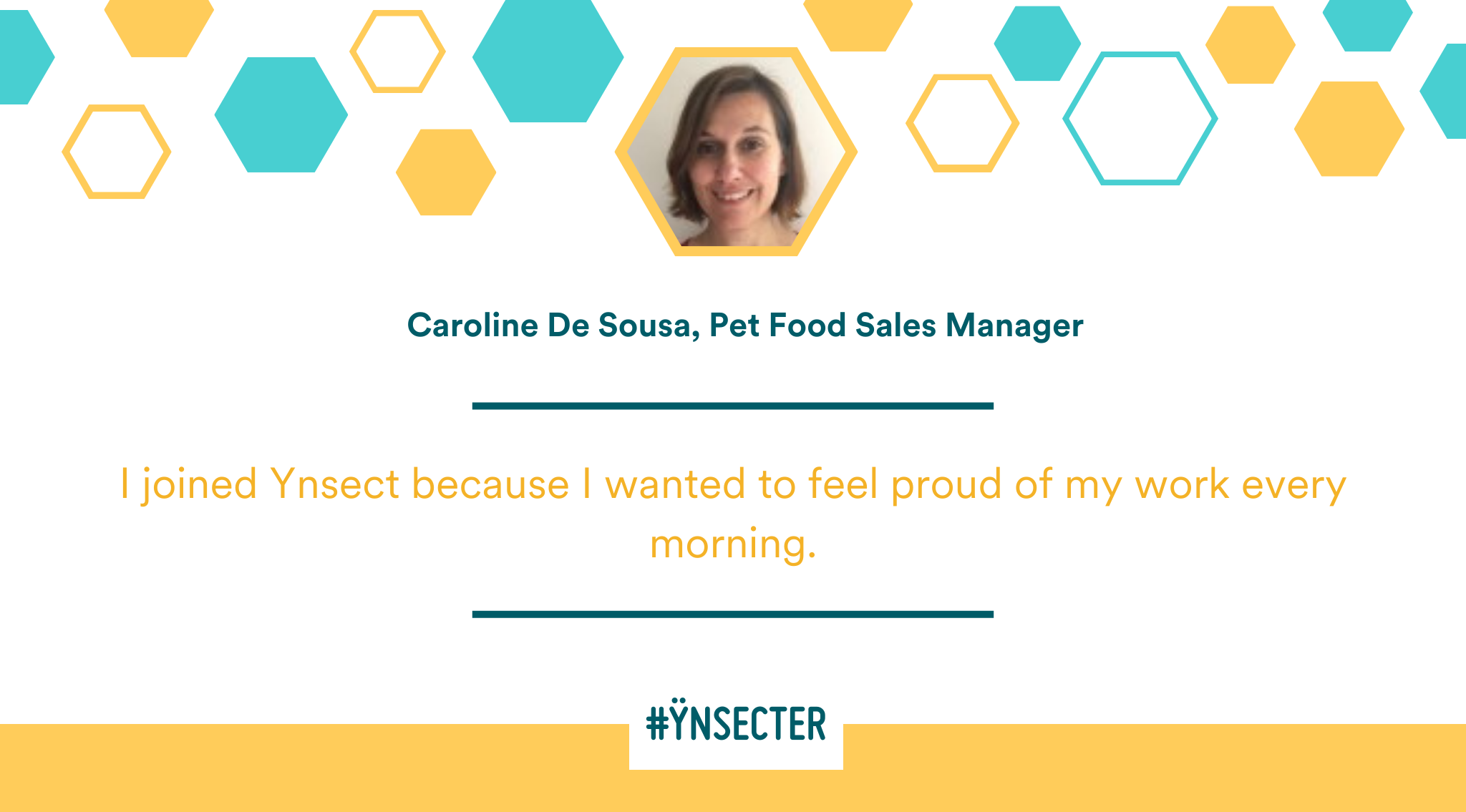- The capital will allow the company to complete the largest insect farm in the world, now under construction north of Paris (France) , a negative carbon project, as well as grow its product lines and expand into North America.
- The new funding comes from Astanor Ventures (Series C lead investor), LA-based Upfront Ventures, Hollywood star Robert Downey Jr.’s FootPrint Coalition, existing investor Hong-Kong-based Happiness Capital, Supernova Invest (the leading early stage investor in the French deep tech market) and Armat Group (based in Luxembourg) who are joining initial Series C investors including in particular Bpi France (including Programmes d’Investissements d’Avenir funds), Talis capital, IdInvest, Finasucre, Bois Sauvage, Vis Vires New Protein Capital.
- Takes total financing to $425 million, more than the total amount raised by the entire insect protein sector globally.
- The financing is also supported by a bank consortium including Caisse des Dépôts (the ‘venture arm’ of the French state), Crédit Agricole Brie Picardie, and Caisse d’Epargne Hauts-de-France.
Paris, 6 October 2020 – Insect farming startup Ÿnsect announced today that they have extended their Series C funding to $372 million – the largest amount ever raised by a non-American ‘agtech’ business.
The new capital will fund completion of the largest insect farm in the world, due to open in the city of Amiens, France in early 2022. Ÿnsect will produce 100,000 tons of insect products annually, as well as create 500 direct and indirect jobs. It will also let the company expand beyond Europe and Asia into the United States, with the support of its first U.S.-based investors, Upfront Ventures and FootPrint Coalition; and grow its markets into the supply of wet pet food.
A growing global population mixed with rising incomes have increased demand for protein and plants worldwide, not only for human consumption but also as a source of food for the fish, poultry, pigs and livestock that people eat. According to the UN’s Food and Agriculture Organisation, consumption of animal proteins will grow by 52% between 2007 and 2030[1].[1] The spike in demand for protein and plants poses a serious risk for the world’s already fragile ecosystems, requiring extra water and land and generating greenhouse gas emissions.
To address this problem, Ÿnsect has created a patented process for cultivating mealworm to produce a variety of highly digestible protein and fertilizer products. These products sustainably replace animal proteins consumed in the supply chain by fish & livestock farms, animal proteins used in pet food and fertilizers used in plant nutrition, while leading to greater yields and health benefits for the animals and plants being fed. Several scientific studies have demonstrated that using Ÿnsect products in place of traditional animal proteins and chemical fertilizers have led to
a 34% increase in yield for rainbow trout, a 40% mortality reduction on shrimp; 25% increase in yield for rapeseed; a 25% mortality reduction for seabass; and a reduction in skin disease for dogs among others.
The new funding and over $105M in sales contracts recognize the dramatic yield and health benefits of the Molitor mealworm versus other insect species, and in particular the black soldier fly. By cultivating mealworms in a vertical farm, Ÿnsect uses 98% less land while significantly reducing the carbon & biodiversity footprints of protein production The Ÿnsect process is designed for a circular economy as it generates zero waste meanting everything which is produced is sold. In fact, the analyses carried out by the Quantis firm show that the Ÿnfarm project is carbon negative,has a sequestered value chain and avoids more CO2 emissions.
‘Our ambition is to revolutionize the food chain which, literally, starts from the basics: insects and soil. It concerns all of us, whether we are meat lovers or vegans because it is how our plants and animals are fed,’ says Antoine Hubert, Ÿnsect’s co-founder, president and CEO. ‘Ÿnsect isn’t just about insect farming: with climate change and increasing populationsworldwide, we need to produce more food with less available land and fewer resources, so that we’re not clearing forests and emptying our oceans. We believe Ÿnsect can play a pivotal role in this global solution.’
The Ÿnsect process is underpinned by deeply innovative technology protected by around 30 patents, representing 40% of the total patent portfolio of the top 10 insect protein companies in the world. To date, Ÿnsect has $105 million worth of contracts signed to supply customers including Torres – one of the most admired European wine brands in the world (Drinks International), Skretting – the largest global fish feed company and Compo Group, the European leader in plant nutrition for gardeners.
“Skretting is proud to be a part of Ÿnsect’s success and we are confident they will continue to be a pivotal player in the global food chain for years to come,” says Jenna Bowyer, Category Manager Novel Ingredients for Skretting, a global leader in providing innovative and sustainable nutritional solutions for the aquaculture industry. “We have been working with Ÿnsect for the past 5 years, supporting their progress towards commercialisation through our continuous ingredient development activities while also committing to a long-term partnership.”
“Antoine and his team are tackling one of the world’s most pressing and significant problems: building a stable and sustainable food supply,” said Yves Sisteron, Managing Partner at Upfront Ventures and Ynsect Board Member. “Solving such a critical global issue requires deep technology and an ambitious vision, and we’re thrilled to partner with this team for the journey.”
Equity and debt financing (where debt represents $139m) was also sourced from Caisse des Dépôts, the ‘venture arm’ of the French state, and a pool of French banks lead by Crédit Agricole Brie-Picardie and Caisse d’Epargne Hauts de France. Arkea, Crédit Mutuel,, BNP Paribas, Credit Agricole Franche Comté and Caisse d’Epargne Normandie also participated.
Françoise Lesage, the chief financial officer of Ÿnsect, said: ‘We have sealed a significant and innovative financial partnership with a pool of banks, led by Crédit Agricole Brie Picardie and Caisse d’Epargne des Hauts de France, to support this next phase of growth – with the help of Caisse des Dépôts, our partner for the real estate project financing. Their commitment to the development of French territories, supported by a strong desire to sustain French innovation, is in complete harmony with Ÿnsect’s mission.’
Eric Archambeau, Co-Founder and Managing Partner of Astanor Ventures, says: ‘Uniquely Ynsect offers its customers significant nutritional advantage that helps them improve yields. Its offer, combined with its proven ability to scale and a carbon negative supply chain, means Ynsect is bringing a highly disruptive scalable new technology that is capable of revolutionising an important segment of our most vital sector, agri-food, guided by a deep understanding of, and respect for, nature. Astanor’s founding thesis has been to back globally ambitious businesses creating systemic change in food and farming while using technology to protect and restore a fragile ecosystem and we couldn’t be prouder of what the Ynsect’s team has achieved so far.’
Ÿnsect has proven resilient throughout the Covid crisis, with minimal disruption to construction and production. As a business currently focused on the production of animal feed and plant nutrition, protective equipment and the most stringent hygiene standards are the norm. ‘We’ve shown that we can weather significant shocks like coronavirus, which in the coming decades is going to be a significant differentiator between businesses,’ Hubert said.
[1] http://www.fao.org/fileadmin/templates/wsfs/docs/expert_paper/How_to_Feed_the_World_in_2050.pdf
Press Contacts:
HOPSCOTCH FOOD & DRINK
UK corporate media enquiries – amay@hopscotch.eu / +44 7506 605110
UK b2b media enquiries – victoria.kukla@sopexa.com / +44 7384894001
US media enquiries – sarah.moreau@sopexa.com / 646-715-6771
Ÿnsect:
Anaïs Maury : anais.maury@ynsect.com | +33 (0)6 78 44 59 80





